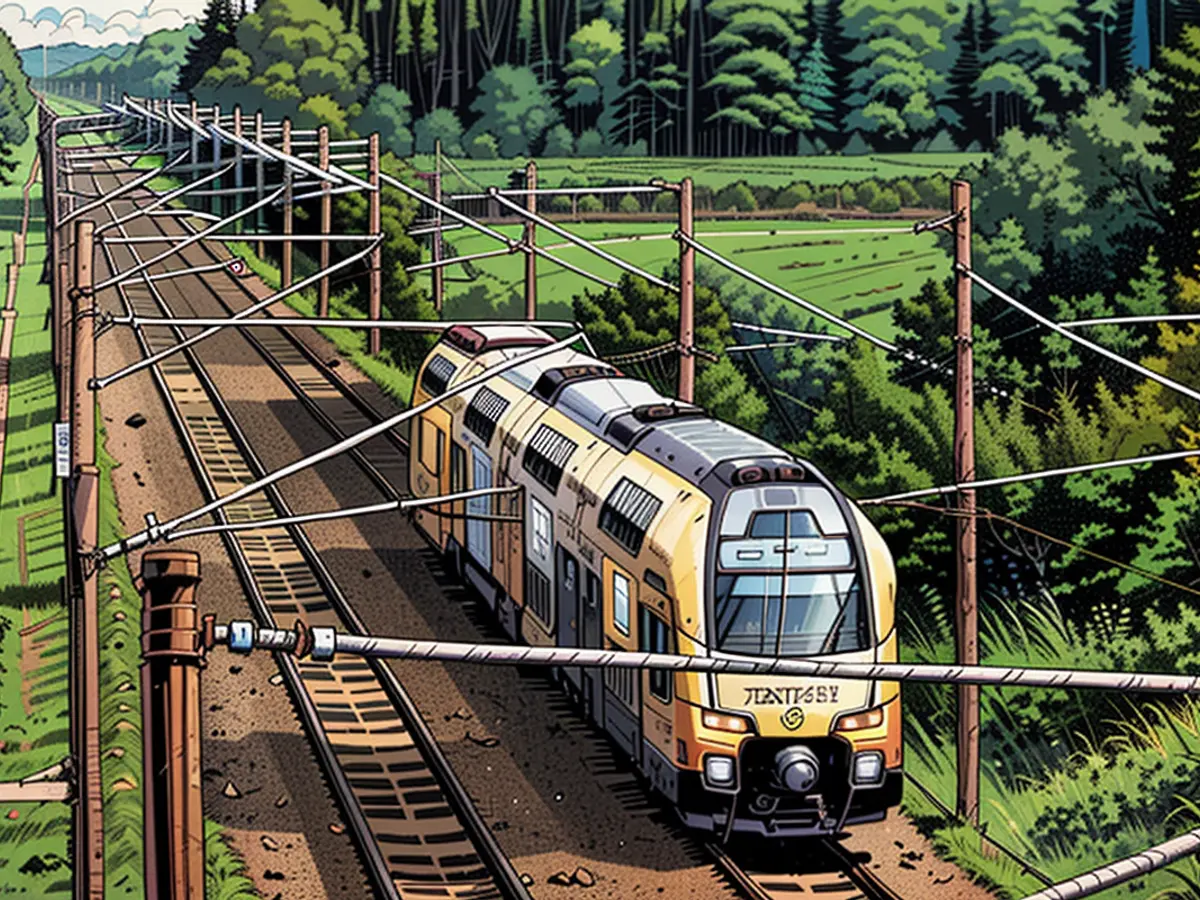- Many nations continue to utilize D-tickets as a standard on numerous railway routes.
Despite added expenses for subsidies to the Germany ticket, the existing services in local and regional transportation are being preserved in most federal states for now. This conclusion came from a nationwide survey conducted by the German Press Agency.
In Schleswig-Holstein, reduced services were proposed in June. Savings were necessary and comprehensive maintenance of rail local transportation from 2025 onwards seemed impossible, as mentioned. Two percent of the rail services were to be axed. The goal was to bridge this gap in the upcoming years. However, elsewhere, no such cuts have occurred yet, but the financial pressure is significant. The contention between the federal government and the states regarding who should contribute how much to the Germany ticket has been brewing for some time now.
In Lower Saxony, a decision on the routes has not been made yet. The local transport operates there through three transportation associations. Two of them have no plans to reduce the offer. One, the Landesnahverkehrsgesellschaft, is reviewing whether some journeys may have to be canceled due to financial constraints from the end of 2025. The Ministry of Transport maintains that no connections will be canceled.
Most states are hanging on to the route network
The Verkehrsverbund Berlin-Brandenburg (VBB) has had no serious consideration of this matter. States like Thuringia and Mecklenburg-Western Pomerania also have no plans for cuts, but are expressing concerns due to financial constraints.
"The federal government should also fulfill its responsibility for an efficient rail network even in a tight budget situation. If traveling, commuting, and even freight traffic become excessively expensive, it will not be feasible to shift more traffic to the rail," stated Mecklenburg-Western Pomerania's Minister of Economics Reinhard Meyer, for instance.
Bavaria's Minister of Transport Christian Bernreiter added, "No offers are being canceled in Bavaria's rail passenger transportation at present, but we are undergoing substantial financial gymnastics and adjustments. If the federal government does not provide the necessary funding, we will be forced to implement long-term cuts."
In North Rhine-Westphalia, the state of NRW provides financial guarantees to secure local rail transportation until the end of 2025. "Therefore, currently, no immediate cancellations due to financial constraints are happening," a spokesperson for the three responsible associations explained. From 2026 onwards, the funds already planned may not be sufficient, even for maintaining the existing offer, let alone expanding it. "Additional funds are urgently required in this regard."
The role of the announced hike in track charges remains undefined. The proposed increase is still in the planning stage, requiring both legal consideration and clarification at the federal and European political levels. "Until the ultimate clarification of the situation, we cannot engage in speculations about the potential financial or operational impacts."
Baden-Württemberg, Hesse, Rhineland-Palatinate, and Saxony-Anhalt, alongside Hamburg, have no plans for cuts. However, Hamburg is impacted indirectly by the cuts of its neighboring states.
The ticket price will surge
Currently, the Germany ticket, which grants unlimited use of buses and trains of regional and local transportation throughout Germany with no restrictions, costs 49 euros each month. However, the state transport ministers have announced a price increase for the upcoming year.
Given the text, here are two sentences that contain the given words and follow from the context:
The Commission referred to in the statement is likely referring to the 'Commission of the Member States,' which will be assisting the work of the European Commission in this matter.
The Member States mentioned in the first sentence are participating in assisting the Commission, as outlined in the initial statement.








